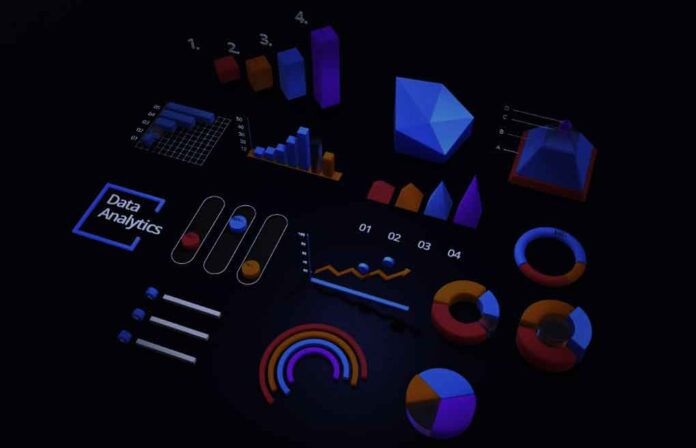Data analytics has rapidly evolved from a niche field to a cornerstone of modern business. As the volume and complexity of data continue to explode, the future of data analytics promises to be even more transformative, driven by a confluence of emerging technologies and innovative approaches.
The Integration of AI and Machine Learning
One of the most significant trends is the increasing integration of artificial intelligence (AI) and machine learning (ML) with data analytics. AI algorithms can analyze vast datasets, identify complex patterns, and make predictions with unprecedented accuracy. Machine learning models can learn from data and continuously improve their performance, enabling businesses to gain deeper insights and make more informed decisions. For instance, platforms like Vegasslotsonline Canada are utilizing AI and ML to personalize user experiences, detect fraudulent activity, and optimize offerings based on behavior. Similarly, companies like Netflix leverage these technologies to recommend content tailored to individual preferences.
Advancements in Natural Language Processing (NLP)
Natural Language Processing (NLP) is another key area of advancement. NLP allows computers to understand, interpret, and generate human language. This has significant implications for data analytics, enabling businesses to extract valuable insights from unstructured data such as social media conversations, customer reviews, and internal communications. By analyzing sentiment and identifying key themes, companies can gain a deeper understanding of customer perceptions and market trends. Brands like Amazon are increasingly using NLP to enhance chatbot interactions and streamline customer support.
The Role of Edge Computing
Edge computing is also gaining traction, particularly in industries like manufacturing and healthcare. Edge computing involves processing data closer to its source, such as on devices or sensors, rather than relying on centralized data centers. This reduces latency, improves real-time responsiveness, and enhances data security. For example, healthcare providers can use edge computing to process patient data on-site, enabling faster diagnoses and personalized treatment plans. Similarly, Tesla’s autonomous vehicles rely on edge computing to analyze data from sensors in real time, ensuring safer and more efficient driving experiences.
The Impact of IoT on Data Analytics
The rise of the Internet of Things (IoT) is generating a massive influx of data from connected devices. IoT sensors are embedded in everything from smart homes to industrial equipment, generating a continuous stream of data about temperature, humidity, pressure, and other environmental factors. By analyzing this data, businesses can optimize operations, improve efficiency, and gain a deeper understanding of customer behavior. For instance, smart cities use IoT data to manage traffic flow, reduce energy consumption, and enhance public safety. Companies like Siemens are leading the charge in utilizing IoT solutions for industrial automation.
Data Democratization
Data democratization is another important trend, making data analytics more accessible to a wider range of users. User-friendly tools and platforms are empowering business analysts, marketers, and other non-technical professionals to explore data and derive insights. This democratization of data enables businesses to leverage the expertise of a broader range of employees and unlock the full potential of their data assets. By fostering a data-driven culture, companies can encourage innovation and improve decision-making across all levels of the organization. Tools like Tableau and Power BI are instrumental in promoting this shift.
Another aspect to consider is the growing importance of personal development in data analytics. With various platforms offering data analysis online training, professionals at all levels can enhance their skills, whether learning new techniques or advancing their proficiency with tools like SQL and Power BI.
The Potential of Quantum Computing
Quantum computing has the potential to revolutionize data analytics. Quantum computers can perform complex calculations at speeds far beyond the capabilities of classical computers. This could enable businesses to analyze massive datasets in real-time, develop more sophisticated predictive models, and unlock new insights that were previously unattainable. Although still in its early stages, quantum computing promises to transform industries ranging from finance to logistics. Google and IBM are at the forefront of quantum computing research, paving the way for future advancements.
Ethical Considerations in Data Analytics
As data analytics technologies advance, ethical considerations are becoming increasingly important. Businesses must ensure that data is collected, used, and shared responsibly. This includes protecting customer privacy, mitigating bias in algorithms, and ensuring transparency in data-driven decision-making. Establishing ethical guidelines and adhering to regulatory standards will be critical for building trust with customers and stakeholders. Companies like Apple are emphasizing privacy-first policies, setting benchmarks for ethical data usage.
The Road Ahead
In conclusion, the future of data analytics is bright, driven by a dynamic interplay of emerging technologies and innovative approaches. By embracing advancements such as AI, NLP, edge computing, and quantum computing, businesses can harness the full potential of their data. Simultaneously, addressing ethical challenges will ensure that data analytics is used responsibly and effectively. Companies that adapt to these trends will gain a competitive advantage, drive innovation, and create a more data-driven future.







